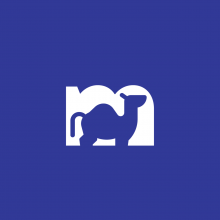
There are 2 Companies in Tunisia
that provide Go development Services!
In terms of digital progress, Tunisia still struggles with disparities in access to computer technologies in crucial sectors. Even though 60% of Tunisians had access to the internet last year, the country’s 2019 network readiness index remains relatively low, ranking 78th out of 139.
Discover Top IT Companies in Tunisia specialized in Go and other related services. Find the best IT service providers for your projects.
Go, also known as Golang, is an open-source programming language created by Google. It is designed for simplicity, efficiency, and concurrency, making it a versatile choice for building a wide range of applications, from web services to system software.
Handpicked companies • No obligation to hire • 100% risk-free
Explore Top Go development Companies in Tunisia
A pioneer in travel technology with a variety of services offering cutting-edge IT solutions for the international travel industry.
CAMEL SOFT LLC is a leading provider of IT solutions and services company.
Services:
Filter Go development Companies in Tunisia by Cities
Dive deeper and find the company you need close to you or, from a specific city you prefer. Some of the best companies come from smaller places
Find more Go development companies around the world
TechBehemoths is the world's most advanced and user-friendly platform to match IT Companies with real clients without hustle.
The Tunisian IT Industry: Overview & Insightful Data
Tunisia aims to position itself as a strategic hub in the Middle East and North Africa by becoming one of the top-performing countries in the region in terms of datacom infrastructure and IT business environment.
In order to promote Tunisia as an attractive destination for outsourcing services and an anchor in the global digital movement, the government has lifted the ban made by the Telecommunications Regulatory National Agency (ANRT) over internet protocol (VoIP) services.
According to a report published by The Brooking Institution in October 2016, the VoIP ban resulted in US$320m of economic loss for Tunisia during the first half of 2016.
In terms of digital progress, Tunisia still struggles with disparities in access to computer technologies in crucial sectors. Even though 60% of Tunisians had access to the internet last year, the country’s 2019 network readiness index remains relatively low, ranking 78th out of 139.
Why you should work with Tunisian IT companies
Low prices and experienced professionals are the main reasons why Tunisia managed to attract direct foreign investments from international companies and organizations. Since the country has focused a lot on BPO services, it may be challenging for locals to establish their own IT and digital companies in a country with a poorly developed IT industry.
What you should pay attention to when working with Tunisian IT companies
The local IT companies are mainly focusing on BPO, due to a poor-developed IT infrastructure. The only valuable resource remains skilled professionals, that over time earned valuable experience, and have increased the country’s performance in the field of digital services.
How reliable are Tunisian IT companies
In terms of reliability, the Tunisian IT companies benefit from foreign companies’ reputations. 82% of all IT companies from Tunisia are multinational or international agencies and investors aiming to attract a low-cost and decent quality workforce.
The main investors in the Tunisia IT industry are French tech companies, which are extending their network and influence in North-Africa and Mediterranean regions.
How does the Tunisian IT industry relate to the neighboring countries?
The close proximity to Spain, makes Tunisia look weak in front of new technology challenges and the poor-developed IT infrastructure, with banned services and risk to terrorism, gives no chance to the country to compete with Spain or Portugal in South-West Europe.
On the other hand, Tunisia is probably the most developed country in North Africa and has the potential to achieve what it was aiming for in the first place - A strategic regional hub. However, Tunisia needs strong financial support from the international community and also transparency and democratic institutions to lead the necessary reforms for the country’s development overall, and particularly in the IT industry.
What is Go and what are its benefits for your projects?
Go, also known as Golang, is an open-source programming language created by Google. It is designed for simplicity, efficiency, and concurrency, making it a versatile choice for building a wide range of applications, from web services to system software.
More than 363 verified IT companies leverage Go in their development projects. These companies range from startups to tech giants like Google, Uber, and Dropbox. They appreciate Go's speed, reliability, and ease of use for building scalable and performant software.
Go service providers rely on various tools and technologies to enhance their development process. Some commonly used tools include the Go compiler, which transforms Go code into executable binaries, and the Go standard library, which offers essential packages for building applications. In terms of deployment, containerization technologies like Docker are frequently used to package Go applications for consistency and portability.
You may be wondering, how is Go Different from C, Rust, and Java. So, below we’ll try to show you more about the differences that exist between them:
-
Go vs. C: While both Go and C are low-level languages, Go offers modern features like garbage collection and memory safety, which simplify programming. Go is also more concise and expressive than C, making it easier to read and maintain. But if you think your business needs companies that also specialize in C, you can find them on this page
-
Go vs. Rust: Rust emphasizes memory safety and control without sacrificing performance. While Go offers simplicity and readability, Rust provides fine-grained control over memory and is suitable for systems programming with a focus on safety.
-
Go vs. Java: Java is a high-level language often used for building enterprise-level applications. It relies on a virtual machine (JVM) and is known for platform independence. Go, on the other hand, compiles native code, offering better performance and efficiency for certain use cases.
Languages related to Go in terms of use cases and features include Python, Ruby, and Node.js. These languages, like Go, are suitable for building web services and backend applications and are known for their developer-friendly features. If you need these programming languages in addition or instead of Go, just click on their corresponding words above to find verified vendors providing those services.
When selecting IT companies that use Go for your project, consider factors such as the company's experience with Go, their portfolio of past projects, client references, and their understanding of your specific project requirements. Look for companies that align with your project's complexity, scalability needs, and budget.
Go service providers are essential for various project types, including:
-
Web Services: Go is well-suited for building RESTful APIs and microservices due to its excellent performance and simplicity.
-
Networking Applications: Go's concurrency support makes it ideal for developing network-related software such as servers and proxies.
-
Cloud Applications: Go's efficiency and speed are valuable for building cloud-native applications and serverless functions.
-
System Software: Go can be used for developing system utilities, command-line tools, and operating system components.
Go is a versatile language, and its speed, simplicity, and efficient concurrency model make it suitable for a wide range of projects, making it an excellent choice for modern software development.

